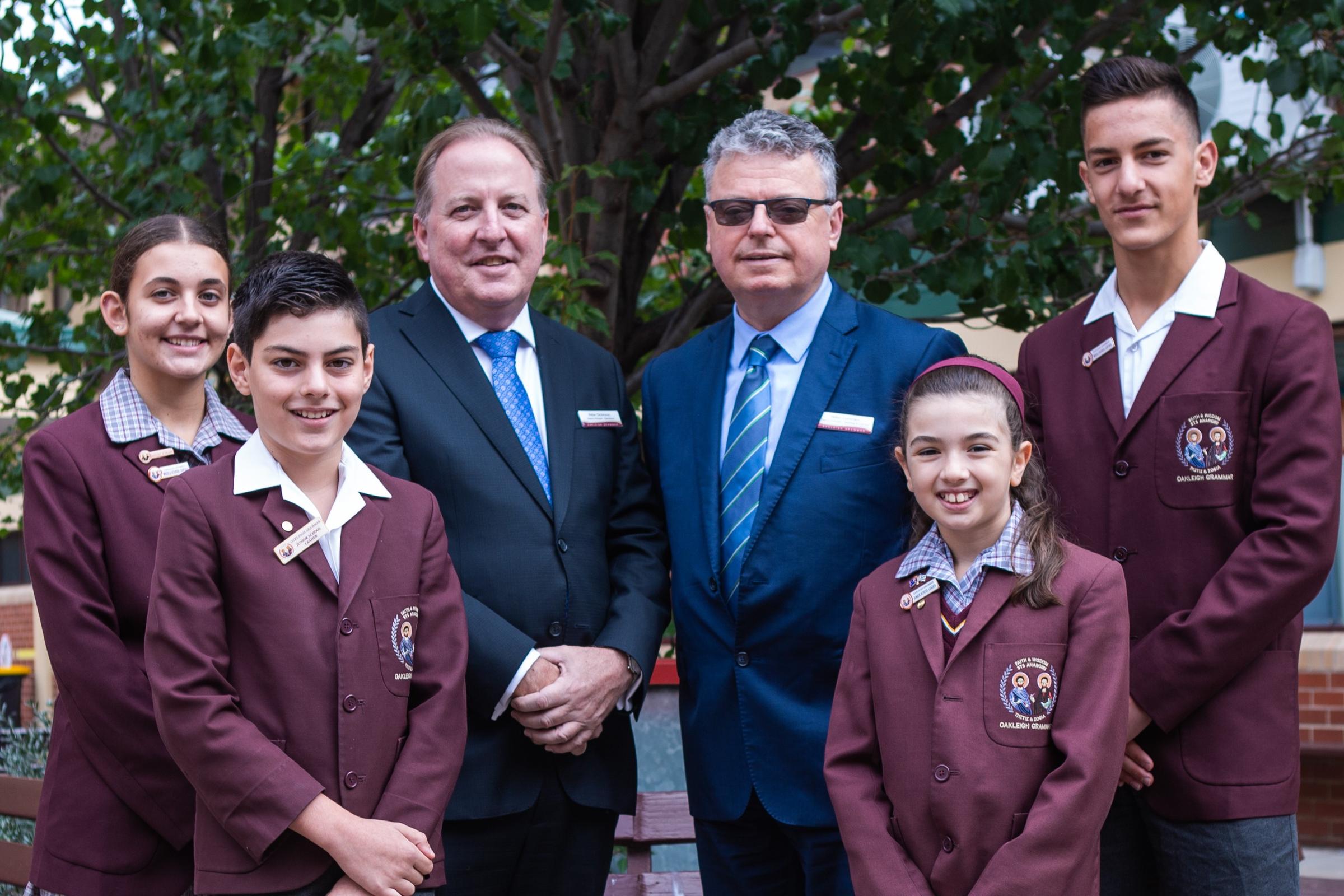
Deputy Principal
PETER CUMMINS
Deputy Principal - Teaching & Learning
School Community Code of Conduct Policy
As you know Victoria has introduced compulsory minimum standards for all organisations that provide services for children, e.g. schools, to help protect children from abuse or neglect. The Child Safe Standards as they are known form part of the Victorian Government’s response to the Betrayal of Trust Inquiry.
Oakleigh Grammar has a zero-tolerance approach to child abuse. Our School complies with the standards for the care, safety and welfare of students as detailed in the Child Safe Standards specified by Ministerial Order No. 870.
In conjunction with the policies relating to Child Safe Standards, the School has a policy entitled the School Community Code of Conduct Policy. A copy of this policy can be found on the Oakleigh Grammar website.
The School believes that all community members play a valuable role in the life of the School and all students, parents, teachers, support staff and volunteers, have the right to be safe and feel safe in their School Community.
This Code of Conduct policy aims to provide members of the School Community with guidelines which promote desirable and appropriate behaviour to ensure that all interaction with students and adults is polite, honest, courteous and considerate. The policy promotes values that are in keeping with the School’s Vision, Mission and Values statement. It also specifies the consequences for any member of the School Community who does not comply with these standards of behaviour.
Staff members are responsible for respecting the individual needs, cultural practices and beliefs of our international students and all families in the Oakleigh Grammar Community. It is our aim to work with parents/guardians to provide an environment that encourages positive interactions and supports constructive feedback.
The important relationship and communication between the teacher, the student and the parents, is crucial in the learning and development of the child. Parents assist this process when they: show an active interest in their child’s school work and progress; when they communicate regularly with the School; and help their child to be neat, appropriately dressed and prepared for School. Importantly, parents can support the education of their child by ensuring he/she attends School regularly and punctually.
Parents should encourage their child to follow appropriate community-based standards of behaviour, and work with the School in dealing with disciplinary issues.
Parents should endeavour to maintain courteous communication with each other, and with teachers and administration staff.
We the Community of Oakleigh Grammar must encourage each and every one of us to value the importance of maintaining a safe and respectful learning environment for all students, teachers and parents. All members of the School Community have a responsibility to support one another, and treat each other with dignity and respect.
PETER DICKINSON
Deputy Principal - Operations
Reconciliation Week
National Reconciliation Week occurs across Australia annually from 27th May to 3rd June. It is an opportunity for all Australians, regardless of cultural background, to stop and reflect on how individually and collectively each of us can contribute to achieving reconciliation in Australia. Remaining the same each year, these dates commemorate two significant milestones in the reconciliation journey— the successful 1967 referendum, and the High Court Mabo decision respectively.
With increasing public debate about the need for Constitutional Recognition, the release of the Uluru Statement from the Heart in 2017, or the recent appointment of Ken Wyatt as minister for Indigenous Australians – the first Aboriginal person to hold a ministry and sit in cabinet - many remain optimistic that these sort of events are leading towards more conversations in the home and workplace, and therefore closer towards reconciliation. However, at the core remains our responsibilities to ensure that all Australian children have the same life chances and choices regardless of their racial background or where they were born.
Personally, I have had the privilege on several of occasions over many years to sit down and spend time with the Bunubu people of the Kimberley, and the Lilla community of the Northern Territory. It has been through listening, sharing of stories, and discussing aspirations that I have developed a far greater appreciation of what it really means to be Australian, and what my responsibilities are.
At Oakleigh Grammar a small but dedicated group of Middle School students have been working towards a presentation in assembly next week to help share the story, whilst there have been activities in other classes. Flying the Aboriginal flag, sharing an Acknowledgement of Country, and discussing issues in class are small yet important steps to help our students stop and appreciate the role indigenous people have played in the development of our country, to celebrate their many achievements, and what is still required if true reconciliation is to be achieved.
According to the National Authority Reconciliation Australia, “Reconciliation must live in the hearts, minds and actions of all Australians as we move forward, creating a nation strengthened by respectful relationships between the wider Australian community, and Aboriginal and Torres Strait Islander peoples.”



